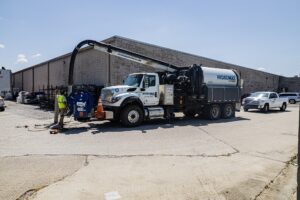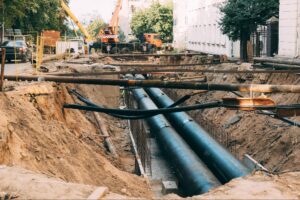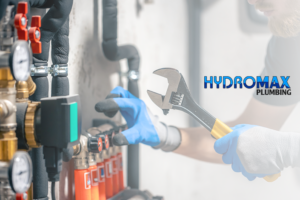Are you tired of battling stubborn limescale, facing expensive appliance repairs, and dealing with dull, spotty dishes? These are the daily frustrations of hard water, a common issue for residential homeowners. Hard water, laden with minerals like calcium and magnesium, may not be harmful to your health, but it can wreak havoc on your home by clogging pipes, damaging appliances, and leaving unsightly deposits on fixtures.
Imagine a system that acts as a switch, transforming this hard water into soft water. Water softeners are specialized systems designed to do just that, efficiently exchanging these hard minerals for softer alternatives. The result? Clearer water, lower energy bills, longer-lasting appliances, and reduced maintenance costs.
This comprehensive guide will walk you through everything you need to know about water softeners, from their benefits and how they work to practical advice on choosing, installing, and maintaining the right system for your home, complete with real-life examples and actionable tips to help you make an informed decision.
Is Hard Water a Problem in Your Home? Signs and Impacts

Hard water forms when groundwater flows through mineral-rich soil, absorbing high amounts of calcium and magnesium. While these minerals aren’t harmful to your health, they are the root cause of many frustrating and costly issues around your home. So, how can you tell if hard water is impacting you?
Look for these clear warning signs:
- Persistent Limescale: The most obvious sign is the buildup of chalky, white deposits on your faucets, showerheads, and inside appliances like your coffee maker and water heater. This limescale not only looks unsightly but also clogs pipes, reduces water pressure, and forces appliances to work harder, increasing your energy bills.
- Subpar Cleaning Results: Hard water reacts poorly with soaps and detergents, preventing them from lathering effectively. This results in soap scum on your shower doors, a filmy residue on your skin, and dishes that emerge from the dishwasher covered in spots.
- Dry Skin and Dull Hair: The minerals in hard water can strip your skin and hair of their natural oils, leaving your skin feeling dry and itchy and your hair looking dull and brittle after showering.
- Increased Appliance Repairs: Mineral buildup from hard water places significant strain on your plumbing and water-using appliances, such as washing machines, dishwashers, and water heaters. If you’re facing more frequent repairs or early replacements, hard water is a likely culprit.
- Excessive Soap Usage: Do you find yourself using much more soap, shampoo, or laundry detergent to get a decent lather? This is a classic symptom of hard water, as you need more product to counteract the minerals.
If these signs are familiar, you are seeing the direct impact of hard water. Recognizing them early is the first step toward seeing the long-term advantages of installing a water softener, which can protect your home, save you money, and improve your daily quality of life.
How Water Softeners Work, Simplified
Water softeners generally operate on a simple principle known as ion exchange. Picture a water softener as a switch operator: as hard water flows into the system, tiny resin beads swap out the harsh minerals for softer sodium or potassium ions. This exchange leaves you with water that is much gentler on your pipes and appliances.
There are several types of water softening systems available:
- Salt-Based Systems: Ideal for severe hard water conditions, these systems physically remove minerals from the water and are highly effective, though they do require regular salt refills.
- Salt-Free Systems: Best for moderately hard water, these units use alternative conditioning technology to prevent minerals from forming scale. They don’t eliminate the minerals entirely but reduce their negative effects and require less maintenance.
- Dual-Tank Systems: Designed for households with high water demand, dual-tank systems ensure continuous soft water even during the regeneration process.
- Magnetic/Electronic Descalers: These systems use magnetic or electronic fields to change the behavior of minerals, reducing their ability to cling to surfaces. They are most suitable for areas with only mild hard water issues.
By comparing these options based on your specific water quality and household needs, you can select a system that offers the best balance between performance and maintenance.
Key Factors to Consider When Selecting a Water Softener
Choosing the right water softener involves careful consideration of several essential factors. Below are some key points to help you decide:
Measure Your Water Hardness
Begin by testing your water’s hardness with a simple kit or by consulting a professional. The measurement, typically given in grains per gallon, is a critical factor in determining the capacity and type of system you need.
Household Size and Water Usage
Your water softener’s capacity should match your household’s water usage. Larger families or homes with heavy water consumption may benefit from systems with higher capacities or a dual-tank design, which ensures continuous soft water availability even during regeneration. Learn more about optimizing household water usage for a water softener.
Maintenance Requirements
Maintenance can vary dramatically between systems. Salt-based units generally require periodic salt replenishment and occasional resin cleaning, whereas salt-free and descaler systems are typically designed for lower maintenance. Consider your willingness to perform ongoing upkeep or the potential need to hire professional services—especially by following a maintenance requirements checklist.
Budget and Long-Term Costs
Weigh the initial installation cost against long-term savings. While more advanced systems may come at a higher upfront cost, they often pay off by lowering energy bills, reducing appliance repairs, and extending the life of your plumbing. A well-chosen water softener can be a cost-effective investment over time.
Space and Installation Considerations
Finally, consider where the unit will be installed. Larger systems may require a dedicated space such as a basement or utility room, while compact units offer more flexibility for smaller homes. Opting for professional installation can also help optimize the setup, ensuring that the water softener operates effectively from day one.


Common Mistakes When Choosing a Water Softener
Making an informed choice isn’t always straightforward. Here are some pitfalls to avoid:
- Underestimating Water Hardness: Failing to accurately measure your water can lead to choosing an undersized system.
- Neglecting Maintenance Needs: Without understanding the upkeep requirements, you may end up with a system that becomes more trouble than it’s worth.
- Focusing Only on Price: Cheaper options may seem attractive initially but can result in higher long-term costs due to inefficiencies or frequent repairs.
- Skipping Professional Guidance: Relying solely on online reviews or basic research may cause you to miss out on expert recommendations tailored to your home’s unique needs.
The Long-Term Payoff: From Cost Savings to Daily Comfort

One of the most compelling reasons to install a water softener is the powerful combination of long-term financial savings and immediate improvements to your daily life. Over time, the cumulative savings on repairs, energy, and cleaning supplies can more than justify the initial investment.
Here’s how you’ll experience the benefits throughout your home:
Extended Appliance Life & Lower Repair Costs
Soft water is the ultimate protection for your water-using appliances. By preventing damaging mineral scale from building up in critical components, a water softener helps reduce the likelihood of costly repairs or premature replacements for your water heater, dishwasher, and washing machine. This boost to appliance longevity protects your investments.
Improved Energy Efficiency
When limescale coats the heating element of a water heater, it has to work much harder to heat your water, leading to higher energy bills. Soft water eliminates this buildup, allowing appliances to operate at peak efficiency and saving you money month after month.
In the Kitchen: Cleaner Dishes and More Efficient Appliances
Soft water transforms your kitchen experience. It improves the efficiency of your dishwasher and prevents spotting, leaving you with sparkling, clearer dishes. Your water heater will also operate more effectively without scale buildup, delivering hot water faster and using less energy.
In the Bathroom: Enhanced Comfort and Easier Cleaning
Say goodbye to soap scum on shower doors and chalky residue on your faucets. In the bathroom, soft water allows soap and shampoo to lather richy, leaving your skin feeling softer and your hair looking shinier and less dull. It also dramatically reduces buildup on showerheads and taps, making cleaning a breeze.
In the Laundry Room: Brighter Clothes and Reduced Detergent Use
With soft water, detergents lather more effectively and rinse out completely. This means you can use significantly less soap to get your clothes cleaner, preserving their softness and color vibrancy. It also protects your washing machine from scale, reducing the likelihood of breakdowns and extending its operational life.
Professional Installation and Maintenance Benefits
While DIY options exist, professional installation offers several key benefits:
- Expert Setup: Professionals ensure that your system is properly integrated with your plumbing, reducing the risk of leaks or operational issues.
- Thorough Inspection: A technician can inspect your overall plumbing system during installation, identifying pre-existing issues that might affect performance.
- Regular Maintenance: Scheduling annual or bi-annual check-ups allows experts to monitor salt levels, clean resin tanks, and address any emerging issues promptly.
Local experts like Hydromax Plumbing are dedicated to offering personalized installation and maintenance services that optimize your system’s performance and extend its lifespan.
Water Softener Maintenance: A Practical Checklist
Maintaining your water softener is key to enjoying long-term benefits. Follow these actionable tips to keep your system in top condition:
- Monitor Salt or Potassium Levels: Check levels regularly—typically monthly—and top up as needed. A deficiency can compromise effectiveness.
- Annual Cleaning: Clean the resin tank on an annual basis to remove any accumulated sediment that could reduce efficiency.
- Inspect Plumbing: Periodically examine pipes and connections for signs of leaks or blockages, addressing any issues promptly. This proactive approach helps minimize plumbing repairs.
- Schedule Professional Service: Arrange for a professional maintenance visit at least once a year to inspect the system thoroughly and perform any necessary tune-ups.
- Adhere to Manufacturer Guidelines: Follow recommended schedules for filter replacements and regeneration cycles to keep your system running efficiently.
By incorporating these maintenance steps into your routine, you’ll ensure that your water softener continues to offer optimal performance and extend its operational lifespan.
Environmental Considerations and Sustainable Choices
When choosing a water softener, it’s important to consider environmental impacts. Traditional salt-based systems generate brine wastewater, which must be properly managed to avoid harming local ecosystems. For more eco-conscious homeowners, high-efficiency models with demand-based regeneration are excellent choices. These alternatives not only reduce water waste but also minimize chemical discharge, contributing to a healthier environment.
Transform Your Home with the Benefits of Water Softening
Investing in a water softener is a smart decision that delivers immediate and long-term benefits—reducing limescale buildup, protecting your plumbing, and increasing overall home efficiency. Homeowners can dramatically enhance daily comfort and lower maintenance costs with a properly chosen, professionally installed, and well-maintained water softening system.
Don’t wait—experience the transformative power of softened water today! Contact Hydromax Plumbing to schedule your water softener installation and maintenance. Let our friendly, expert team help you enjoy enhanced comfort, efficiency, and peace of mind in your home.




